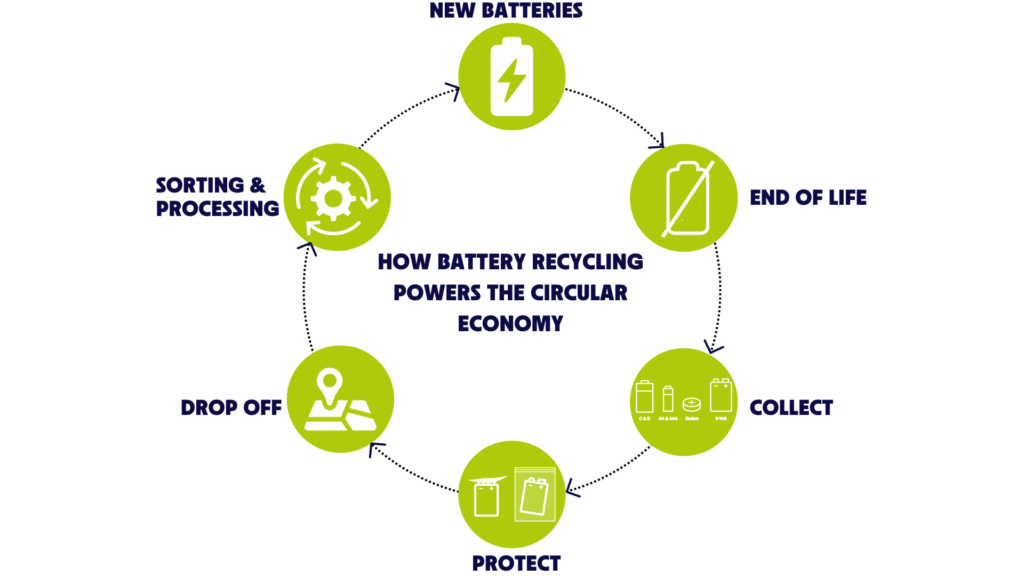October is Circular Economy Month! This month invites us to rethink how we use and re-use materials, with a focus on reducing waste, conserving resources, and supporting Canada’s transition to a circular economy.
One simple way to make a difference and get involved is to recycle your batteries which helps keep valuable materials in circulation and protects our environment.
What is a Circular Economy?
A circular economy strives to reduce waste by keeping materials in use for as long as possible. Unlike the traditional “take-make-waste” model, where resources are consumed and discarded, a circular economy focuses on re-using, repairing, and recycling existing resources. This approach helps conserve scarce resources, reduces waste, and also creates a more sustainable, affordable, and less cluttered world.
Why is Battery Recycling Important for the Circular Economy?
Battery-powered devices serve an essential role in our society, from cell phones to children’s toys, laptops and smoke alarms. As we convert more devices, tools and even vehicles to clean, battery-powered energy, the demand for the resources used to make these batteries will grow.
Battery recycling is essential to help ensure a stable supply of these scarce resources. It is an essential part of building a strong circular economy, where materials are re-used, recycled, and repurposed, rather than discarded.
When you recycle batteries, you help recover valuable materials like lithium, cobalt, and nickel, which are essential for making new batteries. This process closes the loop by reducing the need to mine and process new raw materials, helping conserve natural resources and reducing environmental harm.

In addition to these rare metals, more common materials like steel and copper, found in most household batteries, can also be re-used. These components are valuable for manufacturing everyday items like kitchen appliances, bicycles, and more. By recycling batteries, we ensure these materials don’t go to waste.
Beyond conserving resources, recycling batteries has a direct impact on reducing our environmental footprint. Recycled battery materials typically have a carbon footprint that is four times smaller1 than raw materials sourced from mining. This means that by recycling batteries, we lower the environmental impact associated with manufacturing new products, contributing to a cleaner, more sustainable economy.
It is important for us to think about the impact we can make by recycling instead of throwing batteries away. However, it is even more important to turn these thoughts into action. How will you make a difference this month?
How You Can Contribute to the Canadian Circular Economy
- Join Christine Sinclair’s team and score a goal for Canada’s environment. This October, we are teaming up with Canadian soccer legend Christine Sinclair, to launch the Circular Economy Contest. Simply drop off your used batteries at any Recycle Your Batteries, Canada! participating location, scan the QR code, and enter for a chance to win cash prizes!
- Learn more about recycling and the importance of a circular economy. Visit to discover more about circular economy and waste reduction.
- Get involved and inspired. Participate in Circular Economy Month events happening near you! Get inspired on how to support Canada’s circular economy.
1 Source: McKinsey: The race to decarbonize electric-vehicle batteries








